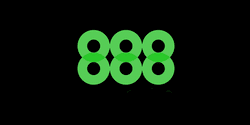Both real world and online casinos in Lithuania are legal as long as operators adhere to conditions set forth by laws passed in 2001 and 2016. Up until recently, online gambling was completely unregulated in Lithuania and casino sites based out of other countries operated freely across the country. That all changed in 2016 and the government today exercises tighter control over who may offer real money games over the internet.
Best Lithuanian Casino Sites
-
Sign Up Bonus100% Deposit Bonus22Bet CasinoClaim Bonus
-
Sign Up Bonus$25 New Player Bonus18+ to Play, T&Cs ApplyBet365 CasinoClaim Bonus
-
Sign Up Bonus50 Free Spins When You Stake £1018+. Play Safe. New customers using Promo code M50 only. Opt in required. 1x per customer. Mining Pots of Gold only. Min £10 stake. Max 50 Free Spins at 10p per spin. Free Spins expire 24 hours from issue. Max redeemable £30. Eligibility rules, game, location, currency, payment-method restrictions and terms and conditions apply. www.begambleaware.org #adWilliam Hill CasinoClaim Bonus
-
Sign Up BonusWager £10 Get £30 + 100 Free Spins18+ to Play, T&Cs ApplyBetVictor CasinoClaim Bonus
-
Sign Up Bonus100% up to £100 instant Welcome BonusT and C apply888 CasinoClaim Bonus
The Lithuanian Gaming Control Authority (LGCA) has so far issued operating licenses to a couple of local sites that may offer online sports betting and casino games. Although we’re happy to have legal online casinos in Lithuania, licensed operators offer an extremely limited experience compared to the international gaming websites that continue to operate in the Lithuanian market without licenses.
For example, Orakulus online casino offers just five games. Two of these are keno-style games while the others are baccarat, war and a type of poker played against the house. In contrast, major online casino sites offer hundreds of games such as blackjack, roulette, baccarat, video poker and dozens of slots. The gulf between local Lithuanian casino sites and international operators is vast.
To put it simply, our gaming laws have created an environment in which licensed operators are unable to compete effectively against unlicensed casino sites in Lithuania. To make matters worse for licensed operators, the law does not prohibit citizens from doing business with foreign gaming sites. Gamblers continue to play at offshore gambling sites in large numbers in order to take advantage of the greater game selection, better software and bigger deposit bonuses.
A New Gambling Law in Lithuania
Lithuania legalized real-world gambling with the Gaming Law of 2001, but that law did not address online casinos at all. Eventually, the European Commission came knocking in 2013 with a request that Lithuania and several other countries provide information regarding their online gaming laws. As Lithuania had no online gaming laws to even speak of, lawmakers got busy drafting new legislation.
Draft laws establishing an online gambling licensing system were sent to the European Commission for review and eventually became the law of the land. Further amendments in 2016 instituted controls in an attempt to funnel players to licensed providers. These latest provisions granted the LGCA authority to create a blacklist of unlicensed operators that must be blocked by local internet service providers and to which banking institutions must block financial transactions.
Current gaming law also requires online casinos seeking licenses to partner with local brick-and-mortar establishments and establish a physical office on Lithuanian territory. Unsurprisingly, the strict requirements have scared away most online gambling sites. To date, only two groups have received online gambling licenses in Lithuania: Orakulus and Tonybet Lithuania.
Regulators now have a problem with unlicensed operators frequently changing their domains to get around ISP-blocks and continue serving Lithuanian citizens illegally. Lawmakers have chastised and threatened unlicensed operators to little effect. Foreign casino sites continue to openly target the Lithuanian market.
It may seem fairly brazen to so openly flout the law, but there are two things to remember. First, many of these foreign online casinos are completely legal, licensed and regulated in their home countries. They follow the law in their home countries. Second, the legal requirement that licensees establish a physical presence in Lithuania before applying for a license is likely a violation of EU treated regarding the free movement of goods and services among EU members. It is unlikely that the EU will take any action against operators who violate a law that is itself “illegal.”
Despite these issues, the Lithuanian government appears unwilling to change its stance. The amendments to the law 2016 make it clear that the government is intent on keeping a tight grip over the industry. Our reading of the law leads us to believe that players face no legal risk. All laws in effect today appear to be directed at operators rather than individual gamblers.
The biggest difficulty you’re likely to face is simply accessing unlicensed Lithuanian casino sites in the first place. The LGCA frequently adds new domains to its blacklist for internet censorship and financial blocking. Online gamblers must resort to either using a VPN service to bypass the internet block or wait for their favourite gambling site to announce a new web address that has not yet been added to the blacklist.
Similar difficulties also arise when making deposits to Lithuanian online casinos. Payment institutions are required to block financial transactions to and from any gambling site on the blacklist. If you have ever tried to make a credit card casino deposit only to have the transaction declined, it may have been due to your bank preventing the transaction. As a result, Lithuanian gamblers are turning to e-wallets and Bitcoin deposits with increasing frequency.
Wes Burns co-founded OnlineCasinoSites.com with a mission to help gamblers understand and navigate the regulated online casino market in all countries around the world. Wes is a respected gambling journalist, working in the industry since 2008.





